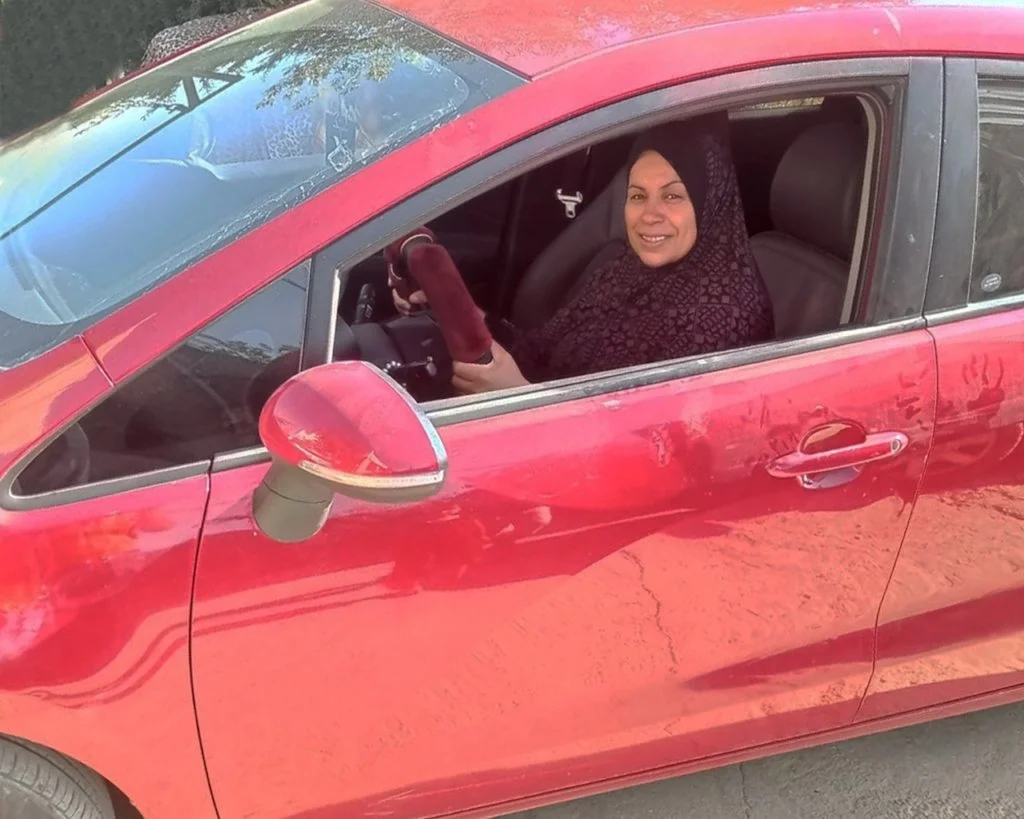Social Work in the South Hebron Hills, West Bank
What's it like being a social worker in the South Hebron Hills of the West Bank? Social Worker Fatma, whose work is supported by this project, must deal with the challenges of daily life along with the impact of violence from the Occupation. She visits villages in the area weekly, and she responds to eviction and demolition crises as they arise. The villages are all in Area C, about 30 minutes to an hour drive away. Some are near dangerous Israeli settlements and other villages are inside Israeli military firing zones.
When she visits, she sets up in the village center where the community can approach her about their problems, and sometimes she also meets with families at their home. Each village gets to speak with Fatma about once a month. However, she gets multiple requests to come more often. A goal of this project is to expand Fatma's team so more South Hebron Hills families will be served, and their concerns will be addressed more quickly.
In step with providing care after trauma from the Occupation, her work in addressing intra-community problems falls into three broad categories:
Children's Well-Being and Education
Fatma reports that relations between many children and their parents, especially mothers, are tense because of quarantine. Because mothers are almost always the ones in charge of children, she speaks with the mothers about keeping their children stimulated at home and continuing their education. Many children stop going to school after the first or second grade, and interruptions from COVID put them in even more danger of never finishing school. She suggests activities they can do together like art and gardening. She teaches mothers to set up a motivation board on the wall where the children can earn rewards for doing chores so they can be encouraged by positive reinforcement instead of violence.
Furthermore, she encourages parents to allow their daughters to continue their education before getting married. Girls get married as young as 14 to 16 years old. Fatma usually has this conversation with just the mothers because the fathers are either at work or don't want to speak to a woman. She convinces parents that their daughters will have more options after education.
Besides speaking to parents, she also does a special art activity with children called "Pinwheels for Peace," which is especially helpful for trauma recovery. Children talk about what peace means, and they write and draw what they envision on pinwheels they make themselves. Being creative helps Fatma draw out their feelings about difficult topics such as demolitions or how scared they feel when Israeli soldiers enter their homes at night.
On International Peace Day (Sep. 21st), at Fatma’s suggestion, children from South Hebron Hills joined children throughout Palestine to meet with American children in Virginia to share their Pinwheels for Peace and ask questions of one another.
The American children asked the Gaza children:
“Can you swim?” “Do you go to the beach often?” “Can you see the Israeli navy ships that block the fishermen?” “Can you travel?” “What do you like to do that makes you happy?” “What can we do to help?”
The West Bank Jordan Valley children asked the American children:
“Why are Israeli soldiers blocking access to our school?” “Why are there so many military training camps around our village?”
Elderly
COVID-19 has made elders vulnerable not just to disease but also loneliness and anxiety. She encourages their family and neighbors to engage with them more so they don't feel so alone and scared of death. Fatma tells them they can ask their elders to tell stories or participate in group activities like spinning wool. She also asks the family to take care of the elders' physical health by helping them take vitamins, maintain hygiene, and observe COVID-19 precautions.
Women's Rights
When women are suffering from domestic violence, Fatma helps them help themselves. She might help them find a part-time job like selling coffee or tea so they can gain a bit of independence. Villagers in the West Bank often live in tents because homes are always at risk for demolition. After earning from small jobs, a woman might be able to set up a separate tent right beside the family's main tent so she can be safe and still be close to her family. In addition, she teaches women how to de-escalate when they anticipate violence from male relatives.
Fatma also puts a lot of time and effort in talking to the community about women's equality. She argues that in Islam, men and women are equal. Women have the right to work and get an education. As Fatma says, "The mother is holding all the family. She takes care of them, harvests, cleans, works besides the man, [and] feeds the sheep. She is working inside and outside the home. How do you say the woman is just for home and the kitchen? The woman has energy. She can work with anything.”
Social worker Fatma's work is invaluable. We hope you agree that her work and the people she serves deserve ongoing support. Please tell your friends about this project, and thank you so much for caring about the people of South Hebron Hills.




